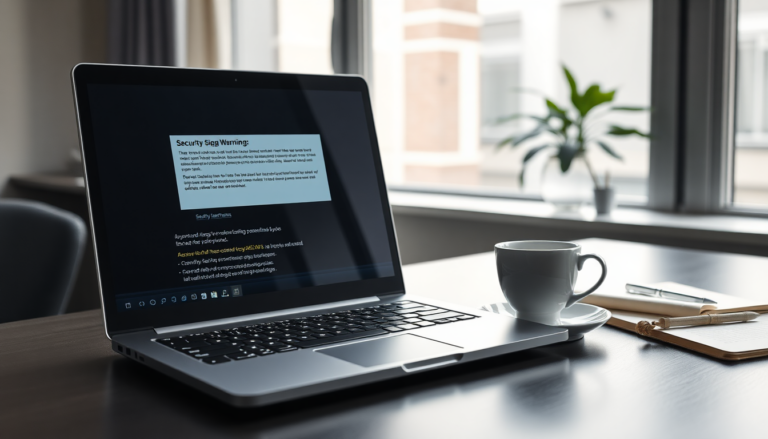Argomenti trattati
The digital age has brought us countless conveniences, but it has also opened the door to a myriad of threats lurking in every corner of the internet. Imagine this: you’re working on your computer, and suddenly, something feels off. Maybe your browser has started behaving strangely, or your system is slower than a snail on a lazy afternoon. These could be more than just mere annoyances; they might be early warning signs that your computer has been hacked. Understanding the nuances of these signs is crucial, especially in a world where cybercriminals are constantly evolving their tactics.
Understanding the threat landscape
When we think about hacking, we often envision a distant cybercriminal, perhaps a shadowy figure behind a computer screen. But the reality is often much closer to home. A hacker could be an organized group deploying malware across thousands of devices, or an individual utilizing remote access tools to invade your privacy. The methods are varied, but the intent is typically the same: to exploit your information for personal gain.
As technology enthusiasts, we must stay vigilant. Every day, new threats emerge, and sophisticated attacks become commonplace. It’s essential to educate ourselves on the signs that indicate our digital fortress might be under siege. The first step? Running a comprehensive antivirus scan. While tools like Norton Power Eraser can help spot hard-to-detect threats, we need to remain alert even after performing these scans. Because, let’s face it, the cyber world is a game of cat and mouse.
Detecting the signs of a compromise
Have you ever received an alert from your antivirus software warning of detected malware? This can be one of the clearest indicators that something is amiss. It’s concerning when these notifications become frequent, even after ‘removal’ attempts. If your antivirus continues to sound the alarm, it might just be scratching the surface of a deeper issue. A hacker could still be lurking in the shadows, holding onto a foothold in your system that your antivirus can’t reach.
Moreover, if you notice odd messages indicating that your antivirus has been disabled, it’s time to raise your eyebrows. A common tactic is for attackers to disable your defenses to execute their malicious activities undetected. And speaking of undetected, have you ever seen your webcam light flicker on when you’re not using it? That’s a red flag. Your webcam may have been hijacked, allowing someone to spy on you without your knowledge.
Performance anomalies and unexpected behaviors
Another telltale sign of a possible compromise is sluggish performance. If applications take an eternity to load, or if your system feels like it’s dragging its feet through molasses, it might not just be your computer’s age catching up with it. Rogue malware, especially crypto-miners, can hog your resources, leaving you wondering why everything is moving at a snail’s pace. I remember a time when my laptop was inching along—turns out, a sneaky little miner was hogging the CPU while I was trying to watch cat videos!
Keep an eye out for frequent crashes or freezing, too. Malware can interfere with your operating system’s stability, leading to blue screens and unexpected application failures. It’s easy to dismiss these issues as mere software bugs, but if they occur with alarming frequency, it’s worth investigating further.
Unexpected pop-ups and browser hijacks
Has your browser been taken over by strange pop-ups or unexpected toolbars? This is a classic sign of adware or spyware. When malware infiltrates your browser, it often manipulates your settings, changing your homepage or default search engine to something unfamiliar. If you’re suddenly inundated with ads or your browser seems to have a mind of its own, it’s a solid indication that you need to take action. I once had a friend whose browser was bombarded with ads for a product he’d never even heard of; turns out, a pesky piece of junkware had decided to take the reins.
Account security and password concerns
Let’s not forget about the importance of account security. Many hacks don’t even involve direct access to your computer. Instead, hackers often exploit weak passwords or leaked credentials from data breaches. If you notice strange emails sent from your account or your passwords mysteriously changing, there’s a chance you’ve been compromised. Always use unique passwords for different accounts and enable two-factor authentication wherever possible. It’s a simple but effective way to bolster your defenses.
Staying proactive in a reactive world
Ultimately, recognizing these warning signs can make the difference between a minor inconvenience and a major security breach. If you sense something isn’t right, trust your instincts. Run those antivirus scans and consider resetting your system if necessary. It might feel overwhelming, but think of it as a digital spring cleaning. A fresh start can remove any lingering threats and restore your peace of mind. Remember, in the ever-evolving landscape of cyber threats, being proactive is your best defense.

